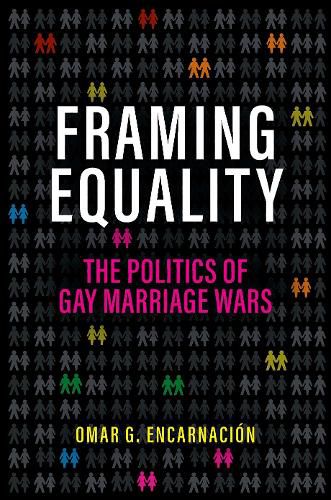Readings Newsletter
Become a Readings Member to make your shopping experience even easier.
Sign in or sign up for free!
You’re not far away from qualifying for FREE standard shipping within Australia
You’ve qualified for FREE standard shipping within Australia
The cart is loading…






Although a lot has been said about the stunning success of the marriage equality movement, not much is known about why the global struggle over gay marriage has varied across countries with respect to the severity of the conservative backlash and the legacy for LGBTQ equality. In this book, Omar Encarnacion presents a cross-national exploration of the politics of "gay marriage wars" by looking at how gay marriage has been framed in three nations.
Drawing on the campaign for same-sex marriage in Spain, the United States, and Brazil, Encarnacion conceptualizes three types of framing models-legal, moral, and political. He argues that while all three models can bring the campaign to a successful conclusion, the moral framing-which views gay marriage as a gateway to "full citizenship" for gay and lesbian couples-is the most consequential for mitigating backlash and bolstering equality. Moreover, this study shows that, despite the prominence of transnationalism in the dynamics of gay rights activism, the main factors influencing the framing of gay marriage are all homegrown, including the political environment, the foundational ideals of the gay rights movement, and the activism of the forces opposing gay marriage.
$9.00 standard shipping within Australia
FREE standard shipping within Australia for orders over $100.00
Express & International shipping calculated at checkout
Although a lot has been said about the stunning success of the marriage equality movement, not much is known about why the global struggle over gay marriage has varied across countries with respect to the severity of the conservative backlash and the legacy for LGBTQ equality. In this book, Omar Encarnacion presents a cross-national exploration of the politics of "gay marriage wars" by looking at how gay marriage has been framed in three nations.
Drawing on the campaign for same-sex marriage in Spain, the United States, and Brazil, Encarnacion conceptualizes three types of framing models-legal, moral, and political. He argues that while all three models can bring the campaign to a successful conclusion, the moral framing-which views gay marriage as a gateway to "full citizenship" for gay and lesbian couples-is the most consequential for mitigating backlash and bolstering equality. Moreover, this study shows that, despite the prominence of transnationalism in the dynamics of gay rights activism, the main factors influencing the framing of gay marriage are all homegrown, including the political environment, the foundational ideals of the gay rights movement, and the activism of the forces opposing gay marriage.